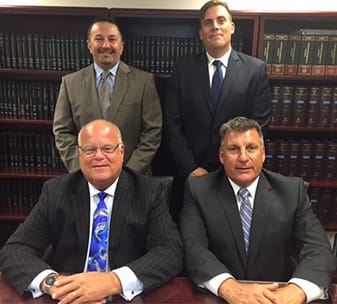Should a debtor reaffirm a mortgage debt during a pending Chapter 7 bankruptcy?
Oftentimes bankruptcy attorneys are mailed reaffirmation agreements on mortgage obligations owing on the debtor’s residence and other real property owned by the debtor for investment or vacation purposes. The issue is whether the attorney should authorize the execution of the reaffirmation agreement.
The mortgage obligation on your residence is a secured debt. There is a lien against the residence by virtue of the debtor executing a mortgage and mortgage note. In the event of a default on the mortgage, the lender has the right to commence a foreclosure action in an effort to take back the residence.
The concept of a Chapter 7 bankruptcy is to provide an honest debtor a fresh start. At the conclusion of the bankruptcy, most of the time your debts are discharged and you are free from significant credit card, medical and other related debts that accrued which resulted in the filing of your Chapter 7 bankruptcy.
Reaffirmation agreement
A reaffirmation agreement is an agreement executed between the debtor and the creditor in which the debtor agrees to repay the obligation that was included in the bankruptcy proceeding. If there is no reaffirmation agreement executed, then the debt is discharged as a matter of law at the conclusion of the bankruptcy. If a reaffirmation agreement is signed and is not rescinded before the conclusion of the case, then the reaffirmed debt continues and remains an obligation that has to be paid regardless of the filing of the bankruptcy.
If for some reason, subsequent to the execution of a reaffirmation agreement, the debtor is unable to meet the required payment, the creditor has a right to sue, obtain a judgment and execute on the reaffirmed debt. Therefore the debtor must be fully informed by his or her bankruptcy attorney as to the ramification of reaffirming a debt. Most often, reaffirmation agreements are executed with respect to outstanding car loans.
It is the position of most well versed bankruptcy law firms that a debtor should not reaffirm a mortgage obligation. If there is a subsequent default on the mortgage debt, the debtor who filed a bankruptcy to obtain a fresh start may find him or herself obligated on hundreds of thousands of dollars on a balance due on a mortgage obligation.
As your bankruptcy attorneys, we rarely authorize our clients to execute a reaffirmation on the mortgage obligation. There is no mandate under a bankruptcy proceeding that compels a debtor to execute such an agreement. The reality is that if a reaffirmation agreement is not executed and the debtors continue to make timely mortgage payments, the lender has no basis to call a default to commence a foreclosure action. If the loan is current and the mortgage continues to be paid, why would someone reaffirm a huge amount of debt?
Certainly a reaffirmation agreement is beneficial to the lender because by signing such an agreement the loan obligation survives the bankruptcy. If for some reason, there is a default on the loan and the property is foreclosed, then by virtue of signing the reaffirmation agreement, the bank has the right to sue on any deficiency on the loan. On the other hand, if there is no reaffirmation agreement executed and a foreclosure does take place, the bank cannot sue you and obtain a money judgment after a bankruptcy discharge. The only remedy is for the bank as lender to take ownership of the home, after the foreclosure sale.
Many mortgage holders attempt to strong-arm debtors into signing reaffirmation agreements. The threat utilized is the bank’s claim that they will not consider a modification of the mortgage at a later date. This threat is not supported by any law and is merely a bullying tactic by some banks to force honest debtors into signing reaffirmations which are not required by bankruptcy law.
It is frustrating when attorneys, who lack bankruptcy experience, come before the court to obtain approval of a reaffirmation agreement. It is clear that inexperienced bankruptcy counsel, who does not appreciate the ramification of the execution of the reaffirmation agreement, could adversely affect a debtor who filed the bankruptcy for the purposes of obtaining a fresh start. It is extremely important to have an experienced bankruptcy attorney protecting your interest to ensure that the goal of obtaining a fresh start is achieved upon completion of the bankruptcy proceeding.

